Climate change in the face of war: Ukraine’s complex crisis
Ukraine’s crisis isn't about the conflict alone; it has also created devastating ecological impacts that continue to threaten people and animals within and beyond its borders.
Veterinarians Without Borders North America/Vétérinaires Sans Frontières Amerique du Nord (VWB/VSF) is a non-profit, charitable organization that focuses on animal health as a way to improve the health of communities. Put simply, we believe healthy animals, healthy humans, healthy planet.
Globally, we focus on a few key issues - controlling rabies, promoting equality, responding to disasters where animals are present, and training and educating community animal health workers in areas where there is no veterinarian. Throughout this, we always keep in mind the One Health perspective, where we consider animals, people and environment before making changes, because changing one thing, can change everything.
We are the North American affiliate of VSF International, and are registered charities in both Canada and the U.S. We operate in countries all over the world offering everything from spay/neuter programs, to gender equity seminars, depending on what is important, needed and wanted in a community.
This small but mighty organization is made up of generous volunteers and dedicated staff. All work is made possible due to the kindness of individuals donors, as well as corporate and government grants. VWB/VSF Canada is close partners with Global Affairs Canada.
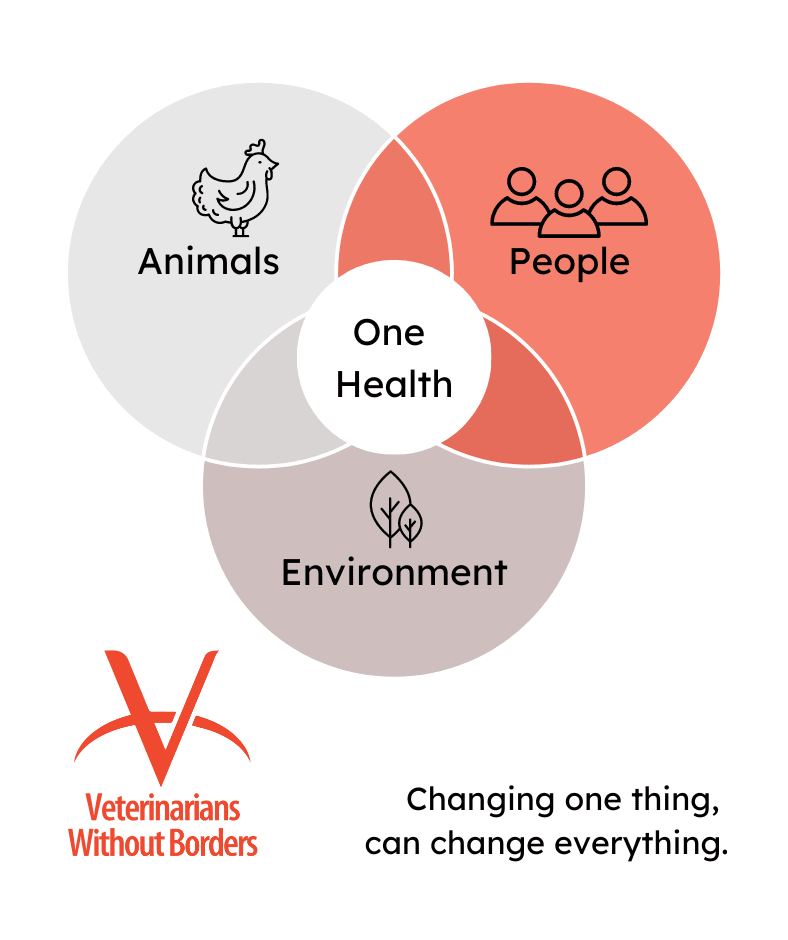
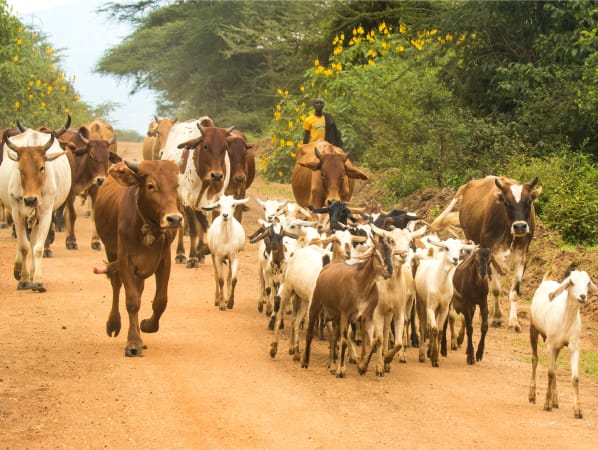
Across all of our projects, we focus on a few key issues - controlling rabies, ensuring women have access to livestock and training and educating community animal health workers in areas where there is no veterinarian. Throughout this, we always keep in mind the Ecohealth/One Health approach.
What sets the Ecohealth/One Health approach apart from earlier ecological thinking is that it puts humans squarely in the middle of the frame. Based on natural sciences, it also takes human behaviour into account and ensures that people and communities are involved in the decisions that affect their health and environment.
The animals that are the focus of VWB/VSF's work bring value to humans as a source of food, income, traction, and companionship, but they are both affected by and affect the environment in which they exist. They are part of a balance that includes land, water, population density, markets, culture, and tradition.
Veterinarians Without Borders North America/Vétérinaires Sans Frontières Amérique du Nord couldn't do the work we do without your support. Whether it's a financial donation or a donation of your time, by improving the health of animals you will be working to improve the health and quality of life for people throughout the world.
Although there is a rabies vaccine and it is a curable disease with timely post-exposure treatment, it continues to threaten human life in the developing world.
Estimates put the death toll at 70,000 people each year, nearly all in developing countries in Africa and Asia. Children are disproportionately affected – more than 60% of rabies deaths are in children under 15 years of age - 99% of them a result of dog bites.
VWB/VSF has been working on this challenge since it was founded and we build rabies prevention clinics into our projects – our effort in Laos and Cambodia is a good example where over 5,000 dogs and cats have been vaccinated in the last five years.
Our Northern Animal Health Initiative also focuses heavily on providing rabies vaccines to underserved communities in the Canadian North
For VWB/VSF, any focus on zoonotic diseases must necessarily include attention to rabies. And while finding resources for rabies prevention may be a challenge, the disease will continue to be on our radar.
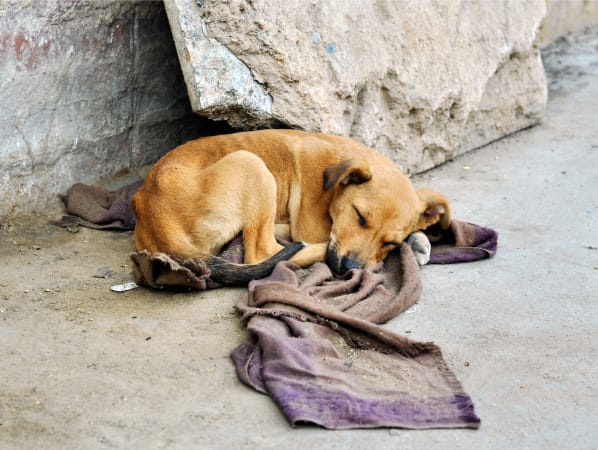
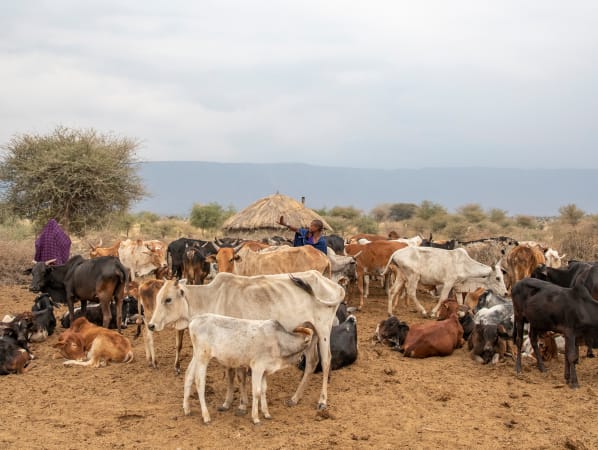
Women do a lot of the farm work in Africa and Asia but often have little control over profit and production. However, at least 2/3 of poor livestock keepers in the world are women. They often own small livestock – poultry, goats and pigs – and even if they don't own cows, they often have control over the consumption of milk and the use of the profits from dairying.
For VWBs, these special circumstances mean that women are an important focus for livestock programming. By ensuring that women have access to livestock and training, we can ensure better nutrition for the entire family as well as income that will be used for household needs such as clothing, health care, and school fees.
As well, women have been engaged as group leaders and local educators and trained as Community Animal Health Workers (CAHW), providing both a new source of family income and a place of respect within the community.
Community animal health workers have become an important element of our approach to development. We embrace the notion that local people with an aptitude for animal care can be empowered to perform basic veterinary tasks.
In many of the countries where we work there are few veterinarians and most of those are government employees working at a supervisory level. Even if more vets were available, most small farmers would not be able to afford their services. CAHWs fill the gap.
Government veterinarians have learned that the value flows both ways as CAHWs are often the first to notice the emergence of new diseases or spot an outbreak in time to prevent a full epidemic.
VWB/VSF also works to ensure that CAHWs have access to the necessary medicines, vaccines, and supplies.
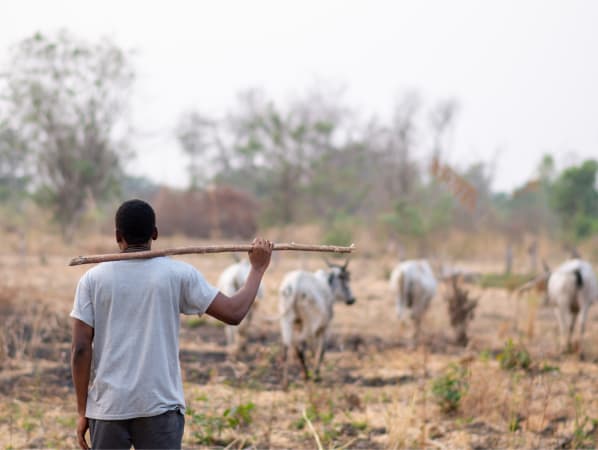
Ukraine’s crisis isn't about the conflict alone; it has also created devastating ecological impacts that continue to threaten people and animals within and beyond its borders.
#VETSVolunteerVoices aims to bring you the stories of our passionate VETS program volunteers from the field. This reflective blog was contributed by Maria Stanborough, a Communications Volunteer with our VETS program in Ghana in February 2024.
As we mark International Mother Earth Day in 2024, we explore how composting is revolutionizing the dairy sector in Kenya, fostering sustainability and resilience in the face of climate change.
